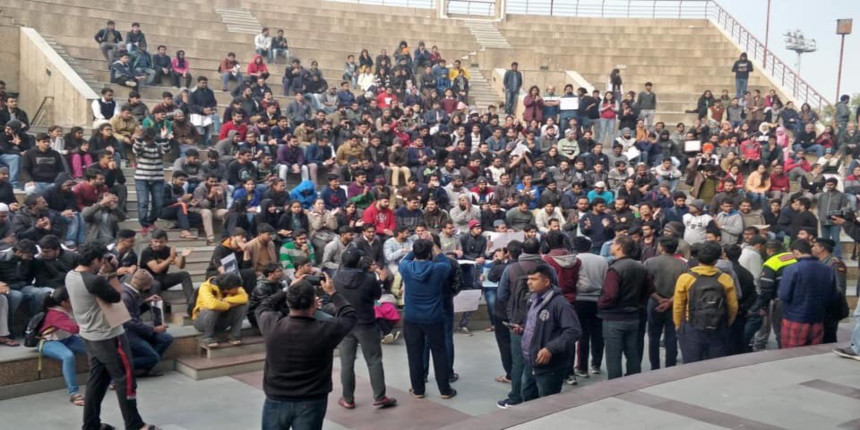Don’t make ‘inflammatory’ posts, IIT Kanpur warns students
R. Radhika | December 23, 2019 | 02:14 PM IST | 2 mins read

NEW DELHI: On December 21, Manindra Agrawal, the deputy director of Indian Institute of Technology-Kanpur (IIT-K) wrote to all students of the institute asking them to “desist from using inflammatory posts/articles/speeches” on campus and on social media.
The letter, sent on December 21, says: “It is imperative not to take any steps that add to disturbance, especially if steps are in violation of the law of the land - as was the case with the recent protest march taken out by a group of students.” The director, Abhay Karandikar, has also instituted an inquiry into“complaints of inflammatory, abusive, and intimidating language” used at the protest. On December 23, Agrawal again wrote to students asking if anyone would like to “depose before the committee with relevant information”.
The protest march referred to was taken out by a section of IIT-Kanpur student on December 17 in solidarity with students of Jamia Millia Islamia University in Delhi and Aligarh Muslim University in Aligarh, Uttar Pradesh. On the night of December 15, students from these two universities, protesting against the recently-passed Citizenship (Amendment) Act 2019, were baton-charged and tear-gassed by the police. Even students who were not participants in the protest but were in their hostels or library were not spared.
Generally aloof, this time even students from the IITs and the Indian Institutes of Management joined the dozens of universities and colleges that protested over the next few days. In IIT-Kanpur, students “negotiated” with the institute’s authorities and the police to hold a silent march and a gathering at the campus open-air theatre on December 17.
The reaction
For the next three days, the institute’s administration was quiet. Then, a video emerged, shot by a faculty member, in which a student is heard reciting Faiz Ahmed Faiz’s poem, Hum Dekhenge. The right-wing press followed with critical pieces on the protest itself on December 21.
The clampdown on students came hard on the heels of these pieces that the IIT Kanpur’s student journal has already countered.
Agrawal’s letter said: “It is the responsibility of each one of us to ensure that harmony is maintained and the law is followed on campus. Any violation may invite action from law enforcing agencies and/or the institute authorities.”
The communications to the students, however, do not tell them who the members of the enquiry committee are or its terms of engagement. However, it is authorised to “scrutinize” social media posts, articles, and blogs posted by the protesters.
Although denied by the Ministry of Human Resource Development through an official statement the same day, The Print had reported on December 20 that the government had asked IITs, IIMs and National Institutes of Technology to track social media use by students.
Follow us for the latest education news on colleges and universities, admission, courses, exams, research, education policies, study abroad and more..
To get in touch, write to us at news@careers360.com.